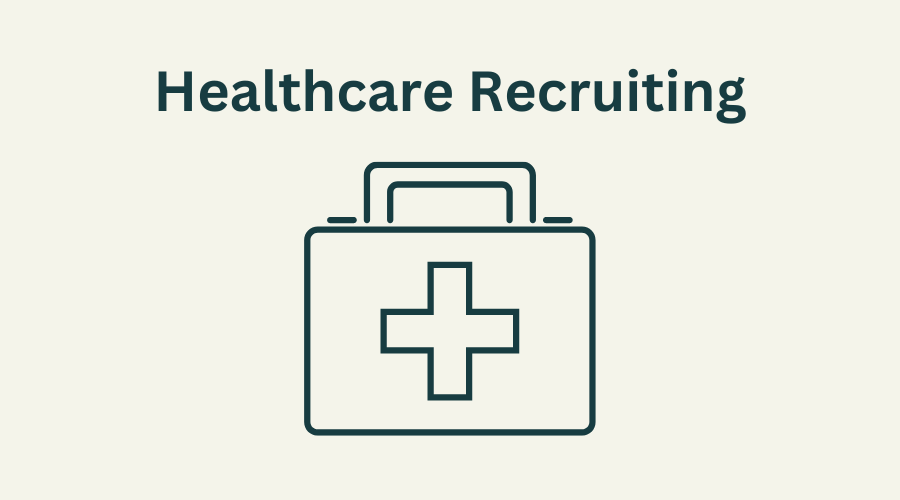
Future of Healthcare Recruiting
The healthcare industry is growing rapidly, and healthcare recruiting is becoming more complex and challenging due to our population getting older and living longer. In order to stay ahead of the competition, healthcare recruiters need to be prepared for the challenges that 2023 and beyond will bring.
Here are the top 6 healthcare recruiting challenges that I see coming up:
1. Talent Acquisition: In 2022, healthcare organizations will be challenged to find the right talent for their organization. With healthcare jobs becoming increasingly specialized and competitive, healthcare recruiters will need to develop effective strategies for sourcing top-tier candidates.
2. Cost Control: The healthcare industry has seen a steady increase in healthcare costs over the past few years, and healthcare organizations are increasingly looking for ways to reduce costs without compromising quality of care. Recruiters will need to be creative in finding cost-effective recruitment solutions that still bring in the best healthcare professionals.
3. Employee Retention: Healthcare recruiters will also face the challenge of keeping healthcare talent engaged and committed to their healthcare organizations. Retaining healthcare professionals is key to success in the healthcare industry, and recruiting strategies should focus on creating an engaging environment for healthcare employees that encourages loyalty and retention.
4. Recruiting Automation: More healthcare organizations are utilizing recruitment automation technology to streamline their recruitment processes. This will present a challenge for healthcare recruiters who are not familiar with the technology, and they will need to quickly become knowledgeable in order to keep up with their healthcare competitors.
5. Adaptability: As healthcare technology advances, healthcare recruiters will need to be able to quickly adapt recruitment strategies to include changes in healthcare technologies and processes.
6. Compliance: Healthcare organizations must comply with relevant healthcare regulations and laws when recruiting healthcare professionals. Recruiters must be aware of healthcare compliance regulations and ensure that recruitment activities are conducted in a compliant manner.
To follow up on these thoughts, The Josh Bersin Company, a research and advisory company focused on HR and workforce strategies, recently published some practical advice for healthcare organizations looking to address the sector’s alarming and fast-growing clinical workforce gaps.
According to Bersin’s research, the healthcare industry is the largest employer in the U.S., with 1 in 7 Americans working in the sector today. The vast clinical capacity gap (there will be a gap of 2.1m nurses, or 1 in 3 nurse roles, by 2025, according to recent Bersin Company research) is the biggest challenge faced by the sector both in the U.S. and globally.
The new report specifies what healthcare organizations should do now, based on this innovative, groundbreaking data—from benchmarking current workforce skills, and identifying roles in decline, using AI to identify skills and roles adjacencies, to determining career pathways to help bridge the capabilities now needed. The report also provides targeted development and educational programs to support people into the key roles of tomorrow.
How to Fix Healthcare Recruiting
Here’s a summary of solutions to address the healthcare recruiting challenge.
- Career pathways can even help raise communities from poverty to higher levels, solve societal challenges, and create equity and sustainability
- Reskilling people from a whole range of other roles, whether inside or outside healthcare, is now one of the most impactful strategies to fill severe gaps in nursing, potentially addressing 1/3 or 700,000 of unfilled vacancies in the health economy
- Healthcare employers need to be more vocal about no-cost retraining opportunities. Although 61% offer tuition reimbursement, only 11% see this widely used by employees and just 8% say employees are aware of these programs
- Educational assistance programs—those that don’t require employees to pay out of pocket—allow economically disenfranchised workers to participate and access genuine opportunity via these programs
- Employees in declining roles like receptionists or environmental services workers have many of the skills needed to easily reskill to entry level clinical roles
- Career pathways programs also significantly reduce the turnover of clinical talent—one of the biggest issues in healthcare (with some providers seeing rates of up to 60%).
- Gale Healthcare Solutions released new survey data today showing that gig-style work options offering flexible schedules and quick pay to workers can address the national nursing shortage and retain sought after nursing staff.
- The vast majority of clinicians – 89% – said they strongly prefer getting paid daily or sooner versus waiting for weekly or biweekly pay schedules. This finding held true across all age groups, not just younger workers.
“Healthcare has 2-3 times as many job titles, skills, and career clusters as other industries, but traditional recruitment and retention solutions alone aren’t effective enough to close the clinical capacity gap. Career pathways from dead-end administrative roles to future-proof clinical jobs are one of the most strategic solutions to fill the clinical shortage over time. However, employers will need to develop long-term strategies to build their pipelines, as the certification requirements and learning/reskilling timelines are very long for clinical roles. As a result, healthcare organizations must think and act outside of the box, and they must start today if they want to survive beyond tomorrow. What’s interesting is that leaders in any industry can learn from these innovations to future-proof their organizations.” -Kathi Enderes, SVP, Research, and Lead Healthcare Industry Analyst at The Josh Bersin Company
The healthcare industry is becoming increasingly complex, and healthcare recruiters need to stay ahead of the curve in order to remain successful. By understanding the top healthcare recruiting challenges of the future, healthcare employers can (and need to) prepare themselves for the changing landscape. These challenges can be solved, but only with a fresh perspective and the leadership to make it happen.


